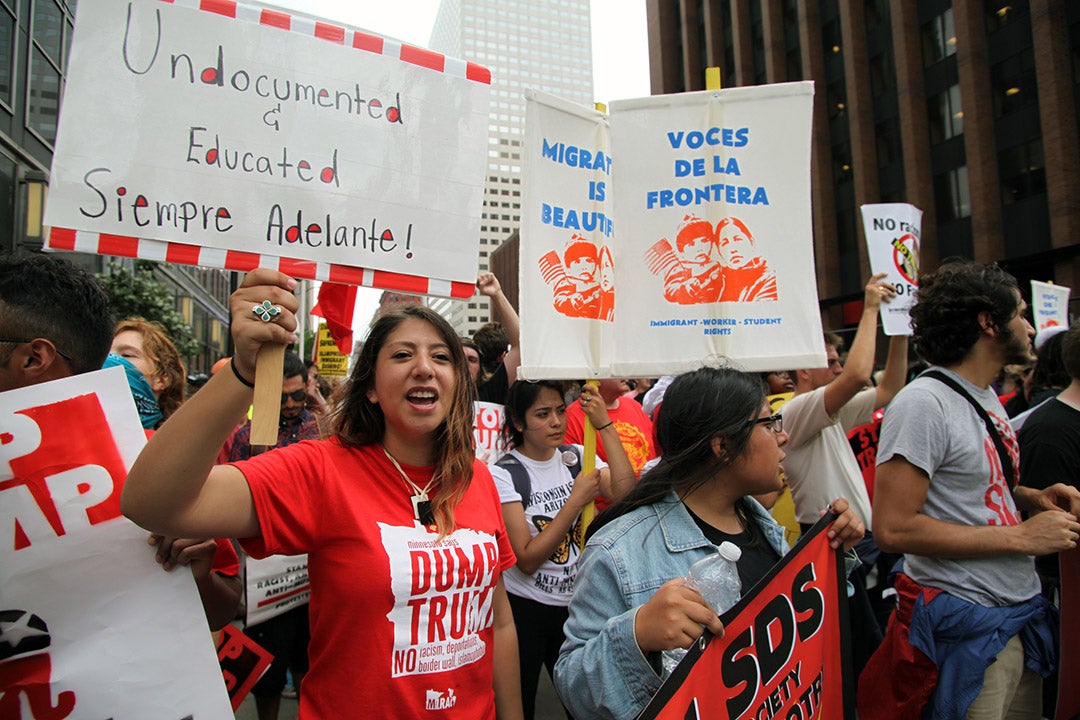The US-Mexico border is one of the most vibrant yet misunderstood regions in the world. Often portrayed as troubled territory characterized by negative attributes such as violence and disordered migration, the reality of this extensive geography is that it is also a place of unparalleled cultural richness and business opportunities created by the convergence of two nations, two languages, two cultures, and two economies.
In mid-September, the Institute of the Americas partnered with the Aspen Institute Latinos and Society Program to convene a ground-breaking conversation called Innovation and Culture at the Border. This convening examined the creative dynamism of US-Mexico border, with a focus on the impact of American Latinos in border economies, and the opportunities that border regions represent for them. Along the border, American Latinos — who are often bicultural, bilingual, and frequently binational — are uniquely positioned to contribute to new approaches that create economic opportunity and advance prosperity.
Examples of creativity and entrepreneurial success are abundant in border cities along the nearly 2,000-mile US-Mexico border. However, such models are many times invisible, actively ignored, or unacknowledged. To counter such invisibility and enrich the narrative, Innovation and Culture at the Border brought together individuals who work and live along the US–Mexico border (with a special focus on CaliBaja) and who have intimate, practical knowledge of the challenges and opportunities for innovation and creativity.
To demonstrate the dynamism of innovation at the border, the first panel shed light on some of the efforts taking place to build an inclusive cross-border innovation ecosystem. Featuring Regina Bernal, entrepreneurship manager at the University of San Diego School of Business, Ricardo Mora, founder and CEO of Technology Hub in Ciudad Juárez; and Guillermo Mejía, managing director at MindHub in Tijuana, the panel presented a range of efforts from entrepreneurship competitions to the creation of innovation communities, and a unique cross-border investment consortia providing start-up capital to emerging tech entrepreneurs. Bernal, who works on creating connections across the entrepreneurial ecosystems of San Diego and Tijuana shared that if you’re always listening to the same views, then you’re always creating the same thing, but when you bring diversity into the conversation, you get something different.
The second panel, moderated by Marcela Celorio, consul general of Mexico in San Diego, focused on how the cultural blend of border regions can foster economic opportunities through art and the creative industries. Identity and authenticity as a platform for building new kinds of businesses, art as a ladder to upward mobility, and the unique ways the convergence of two cultures play out to create a fusion that is expressed through art, architecture, and food were discussed by Jim Brown, owner of Bread & Salt and principal at PUBLIC Architecture and Planning; David Favela, founder of Border X Brewing ; and Jessie Zelayandia, artist and CEO at Together we Rise. “Having that ability to just shift language, vocabulary, culture… all those elements, and still be effective in any situation, how could that not be a gift?” Favela said as he reflected on his life and business experience.
At a time when there is a push to close or reinforce borders, this conversation highlighted what is at risk and what can be gained through a different approach. To unleash the creative and economic potential of the U.S.-Mexico border, one must acknowledge and work across the two sides of the border. The potential is becoming reality, and it is being realized through the actions of many individuals and organizations whose work transcends the border and builds on its existence as a source of creativity and opportunity.
Carlos Martínez-Vela is the Vice President for Innovation and Entrepreneurship at Institute of the Americas.


